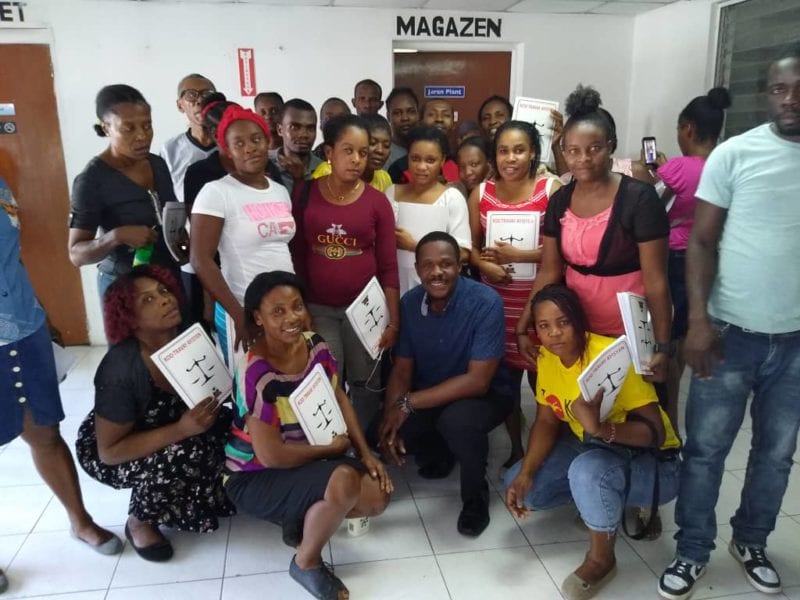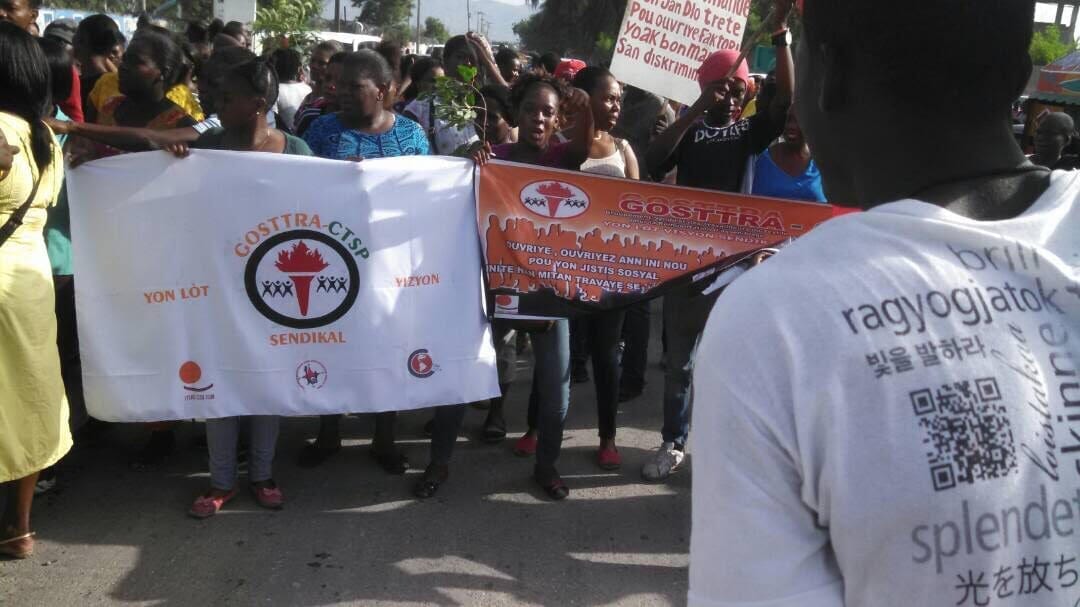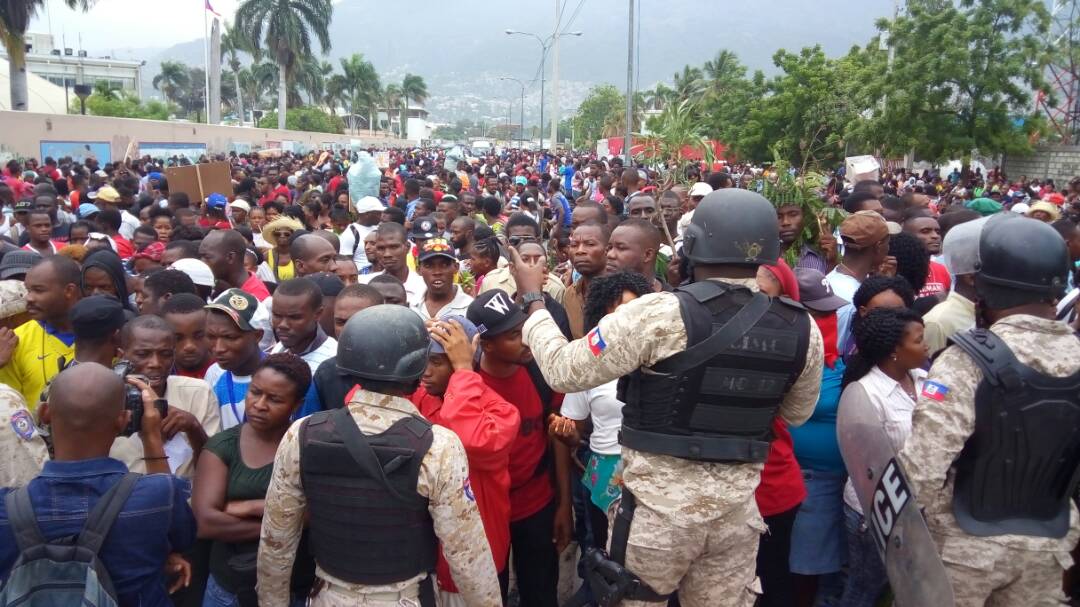Update: On July 27, the Haitian government announced a slight minimum wage increase for garment workers that fall far below workers' demands for a wage that would enable them to support their families. The minimum wage will rise by 81 cents a day, to $5.73. Union...

In Haiti’s export apparel industry, the Solidarity Center joins with unions to educate workers about their rights under national and international labor laws. Credit: Olton Dorvelus
Haiti faces overlapping economic, political, and humanitarian crises, including severe political instability, gang violence, natural disasters, food insecurity and forced migration. Workers experience the collapse of government in their daily interactions with the institutions charged with enforcing labor rights or providing social services.
Gang violence and fuel shortages prevent workers from getting to work and hamper the delivery of materials to factories. After paying a significant portion of their wages for transportation, and enduring a dangerous journey, some workers are sent home without pay because the factory did not receive the materials needed for production.
In this context, garment workers struggle to make ends meet. The minimum wage in the garment sector is 685 gourdes ($5.36) per day. Solidarity Center studies repeatedly have demonstrated the daily minimum wage is far less than the estimated cost of living in Haiti. While the garment sector remains Haiti’s largest source of formal employment, significant job losses have left most garment workers facing diminished working hours or layoffs, threatening their ability to provide for their families. The reduction of full-time jobs also has reduced union membership, thereby threatening the ability of unions to negotiate better working conditions. Notably, there is only one collective bargaining agreement in the sector.
Despite the recent contraction of the garment sector, it remains one of Haiti’s fundamental pillars of economic growth and formal employment. With greater capacity to hold employers and government accountable to respect labor rights in the garment industry, garment sector unions contribute to creating a culture of accountability, justice, and the rule of law— critical elements for fostering democracy and enhancing the culture of peaceful conflict resolution in a country riddled with political fragmentation and violence
Haiti Garment Workers Demand Wage Boost to Survive
Hundreds of garment workers in Port-au-Prince, Haiti, staged a peaceful demonstration this week to protest the firing of some 45 union leaders from the Haitian garment workers’ federation, GOSTTRA, and to push for a badly-needed minimum wage increase. According to...
Haiti’s Mining Industry: Worker Rights in Peril
If the current political impasse in Haiti is resolved, lawmakers are likely to consider how to develop the country’s untapped gold and copper veins—and the process will determine the extent to which workers achieve their share of economic prosperity. “Given the dearth...



